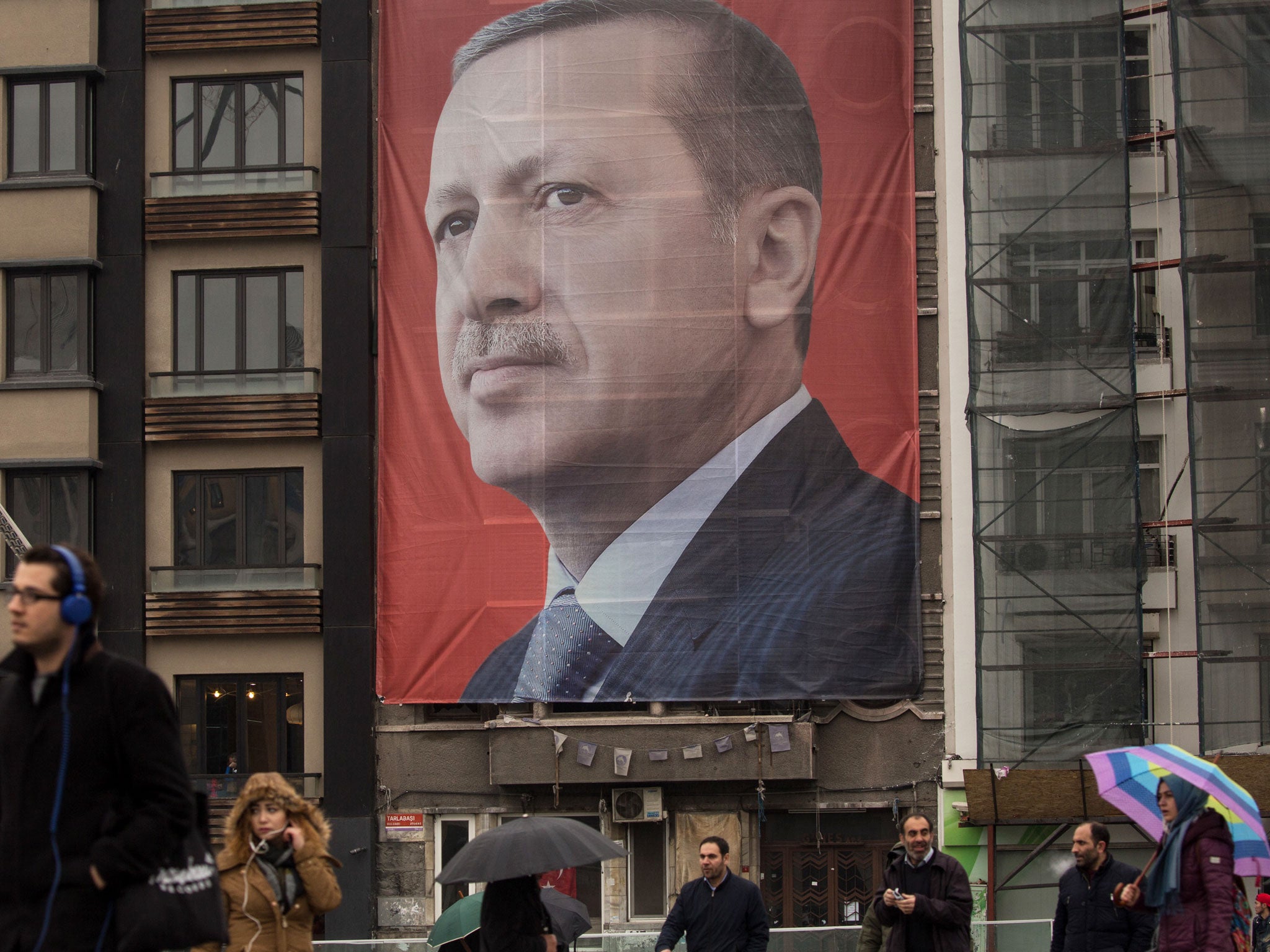Germany opens investigation into Turkish group accused of spying on Erdogan opponents in 35 countries
Leaked documents claim Turkish consulates in four continents involved in intelligence gathering

Germany has opened an investigation into a Turkish religious organisation accused of spying on behalf of the government over an attempted coup against Recep Tayyip Erdogan.
Prosecutors are reportedly probing Halife Keskin, who heads the foreign relations department of Turkey’s “Diyanet” state religious authority, over allegations imams were asked to gather information on supporters of an exiled cleric.
Investigators have a document appearing to show Keskin personally instructing Turkish missions around the world to spy on alleged members of Fethullah Gulen’s “Hizmet” movement, German media reported.
Diyanet asked Turkish consulates in 35 countries including Australia, Nigeria, Mauritania and Mongolia to gather information about Gulen supporters, according to leaked documents.
President Erdogan and his allies accuse Mr Gulen of plotting a failed coup in July, but he has denied the charge and governments in the US and Europe have found no evidence to support it.
The US-based cleric’s movement admits some of its supporters may have been involved in the failed uprising, which left hundreds dead, but ensuing anti-Gulen purges seeing thousands jailed and newspapers shut down have been seen as a wider crackdown on dissent.
German, Austrian and Swiss authorities have all launched investigations into whether Turkey is conducting illegal espionage on their soil.

Documents made public by an Austrian politician this week alleged that Turkish embassies on four continents had submitted reports on alleged Gulen supporters after receiving a request from Ankara in September.
“There is clearly a global network of informants,” Greens MP Peter Pilz said.
“We cannot say exactly how long it took to build up this network. I assume that it happened in a matter of years.”
Among the documents released by Mr Pilz was a written demand for information on Gulenists on 20 September, using the letterheads of the Prime Minister's office and Diyanet.
The returned reports listed the names, addresses and social media activity of alleged dissenters, as well as of publishing houses, media groups, educational centres, politicians and schools deemed to support the US-based cleric.
Turkey has rejected previous accusations of using religious bodies in Europe to spy on Mr Erdogan's critics, with a senior government official calling the most recent claims “completely false.”
But the religious attaché of Turkey's embassy in Austria told a local newspaper that mosque groups had a duty to check whether people of Turkish origin in Austria had been “radicalised” by Mr Gulen and any reports on them were legitimate.
Countries routinely post intelligence officers in their embassies, and European authorities have not said in what ways the alleged Turkish activity went beyond acceptable levels of information-gathering by a foreign power.
The scandal intensified in Germany after the head of Turkey's MIT intelligence agency demanded help spying on hundreds of suspected Gulen supporters from Germany's Federal Intelligence Service during last month's Munich Security Conference.
Some of the images included on a list of around 300 names were allegedly secretly recorded using CCTV and other means, showing they had been gained using espionage.
Boris Pistorius, the interior minister for Lower Saxony State, called the move was “intolerable” and said there was “no evidence that Gulen supporters in Germany had anything to do with the attempted coup”.
Saying all listed people in his state had been warned, he accused the Turkish government of having an ”almost paranoid fear of conspiracy“ and of trying to silence its critics, with 41,000 arrested in the post-coup crackdown on Gulen supporters.
A report by the House of Commons Foreign Affairs Committee found that evidence of the Gulen movement’s involvement in the group was “anecdotal and circumstantial”, as was evidence used for its terrorist designation by the Turkish government.
“While some of the individuals involved in the coup may have been Gülenists, given the large number of Gülenist supporters and organisations in Turkey, it does not necessarily follow that the Gülenists were responsible for the coup or that their leadership directed the coup,” MPs concluded last week.
A lack of evidence caused Barack Obama’s administration to refuse Ankara’s calls to extradite Mr Gulen from his home in Pennsylvania but there has been speculation that Donald Trump may not share the position.
Refusals by the American government and much of Europe to recognise Ankara’s accusations against Mr Gulen has worsened relations with Turkey amid a dispute over cancelled political rallies.
Local authorities in Germany, Austria and the Netherlands were likened to “Nazis” by Mr Erdogan after blocking campaign events by ministers attempting to drum up support for a constitutional referendum that could see Turkey’s parliamentary democracy replaced by an executive presidency.
The move has generated international alarm over the prospect of dramatically increased powers for the Turkish President, which human rights groups warning the proposed changes threaten human rights and democracy.
Additional reporting by Reuters
Join our commenting forum
Join thought-provoking conversations, follow other Independent readers and see their replies
Comments
Bookmark popover
Removed from bookmarks